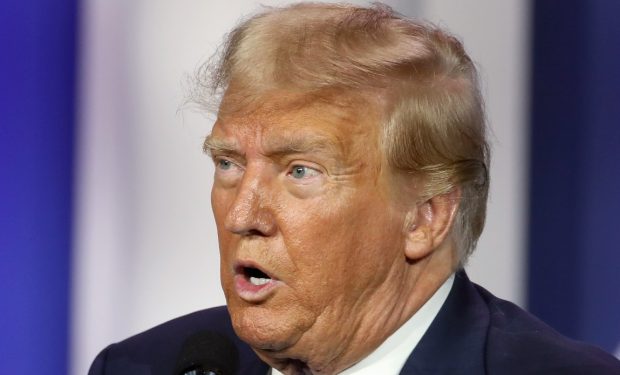Congressman Eric Swalwell (D-CA) appeared on news programs this weekend to combat yet another charge by Donald Trump that the government, in pursuing it 2020 election interference case against him, is now participating in its own “election interference.”
At issue is the highly redacted evidence submitted to Judge Tanya Chutkan (US District Court for the District of Columbia) by Special Counsel Jack Smith.
The filing comprises nearly 2,000 pages of evidence and argument — about a “desperate bid” to overturn the election — that, were the wheels of justice turning faster, the American public would already be aware of.
But the wheels of justice have not moved fast — especially when it came to Trump’s appeal to the Supreme Court, which ultimately granted him (and all presidents) a measure of presidential immunity, including protection from prosecution for “official acts.” After first allowing a lower court to weigh in on the case, SCOTUS then took until the end of its previous term to issue its presidential immunity ruling.
Swalwell concludes that the timing of the release — admittedly close to the election — is the doing of Trump’s side, and of Trump’s Supreme Court. (Trump nominated three of the nine Justices.)
He “got the ruling he wanted [from the SCOTUS],” Swalwell says, but that ruling dictated the timing of Smith’s filing, which sought to recast the evidence in light of the SCOTUS decision — and to distinguish “official” acts from the private acts of “candidate” Trump, not President Trump.
Who would hire this guy? pic.twitter.com/HatKzyiQ6R
— Rep. Eric Swalwell (@RepSwalwell) October 19, 2024
The release of the filing so close to the election is nevertheless being characterized by Trump’s side as “election interference” — an “October surprise” likened by some to then-FBI Director James Comey‘s 2016 re-opening of the case concerning Hillary Clinton‘s emails.
Anticipating the criticism, Judge Chutkan pre-empted Trump’s argument in her decision to release the material publicly, and turned the tables on Trump’s own argument about the court’s potential influence on the election.
“If the court withheld information that the public otherwise had a right to access,” Chutkan asserted, “solely because of the potential political consequences of releasing it, that withholding could itself constitute or appear to be, election interference.”
